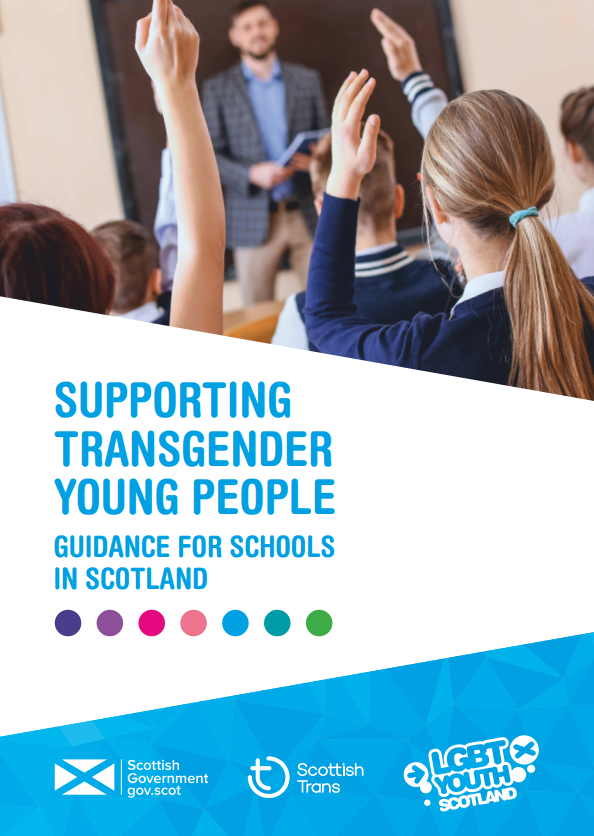What do we know about school experiences and attainment?
Post-compulsory education is largely accessed through successful completion of secondary school. Such access is often conditional on prior attainment. We know that educational attainment can be negatively affected by many things, such as socio-economic disadvantage or time spent in local authority care. It is reasonable to assume that if trans and gender diverse young people are more likely to have a difficult school experience this will impact upon their attainment and, therefore, their post-school options.
Ideally, we would be able to examine the attainment and post-school destinations of this group of young people in comparison to others to draw conclusions on their success and representation within further and higher education. In the absence of such data however, it seems appropriate to assume under-representation at college and university.
Stonewall recently published its School Report 2017, a study of the experiences of over 3,700 LGBT pupils across the UK. It found that:
- Nearly 2 in 3 (64%) transgender young people reported being bullied; 1 in 10 (9%) have received death threats; more than 4 in 5 have self-harmed (84%) and 2 in 5 (45%) have tried to take their own life.
- 52% of LGBT young people felt that homophobic, biphobic and transphobic bullying has had a negative effect on their plans for future education
I lost confidence and the power to succeed and get the best qualifications. I left because I was scared and I didn’t belong in that environment.(George, 16, faith school, Scotland)
Click here to view the full School Report
An LGBT Youth Scotland survey in 2012 on life in Scotland for LGBT young people found that they identified education as the environment in which they faced the most discrimination. The survey found:
- 88% of those who had experienced transphobic bullying believed that it had negatively impacted on their education;
- 77% of transgender respondents had experienced homophobic, biphobic or transphobic bullying in school;
- 42% of transgender young people who had experienced transphobic bullying had left education as a direct result of transphobia.
Click here to view the full Life in Scotland - Safety report.
Outreach work
Universities and colleges undertake a great deal of effective outreach and recruitment activity, particularly with those currently under-represented in education. It seems likely that, unless there is specific focus on reaching trans and gender diverse young people in schools and older people in communities, they may not participate in these access or outreach activities, however. Difficult school experiences are likely to make people unwilling to volunteer for additional outreach programmes in schools and poor attainment may mean they are not selected as young people with potential to reach college or university.
Findings
The TransEDU research findings suggest that some young people were initially negative about continuing in education because of difficult school experiences. The need for inclusive outreach activity seems clear. There was also evidence that trans and gender diverse people who were considering further study investigated the level of LGBT support within an institution before deciding whether to apply. Many felt more comfortable and welcomed if there were visible LGBT societies and the prospect of a named Trans Officer was appealing to all interviewees.
I feel positive about these choices. I know all the universities that I want to apply for have quite a strong LGBT group or links. I know that [first choice university] has a really prominent LGBT group … and [second choice] does as well, and there’s a lot more of a gay scene.
- TransEdu Scotland interview participant
Actions
A number of the TransEDU recommendations specifically relate to widening access, outreach and recruitment:
- Every college and university should publish webpages specifically for trans and gender diverse applicants and students. Ideally, this should contain details of support provision and relevant policies as well as maps of gender neutral campus facilities and any clubs, societies and events. These pages will provide a welcoming and reassuring introduction to anyone considering an application and will raise awareness of trans and gender diverse people to others. Where possible, departments, schools and faculties should consider supplementing the main pages with their own. These can detail specific arrangements on placement support, uniform or dress requirements etc.
- Ensure those who undertake online searches for your institution and ‘trans’ or ‘gender diversity’ as search terms find welcoming and informative search results. The best way to do this is by publishing specific webpages.
- Every institution should nominate a named contact for trans and gender diverse applicants, students and staff or anyone supporting a trans person. This approachable, trans aware member of staff can provide one to one information to help people navigate institutional processes.
- Recruitment, widening participation and engagement teams should consider working with schools and community groups to provide outreach support specifically targeted towards trans and gender diverse young people.
